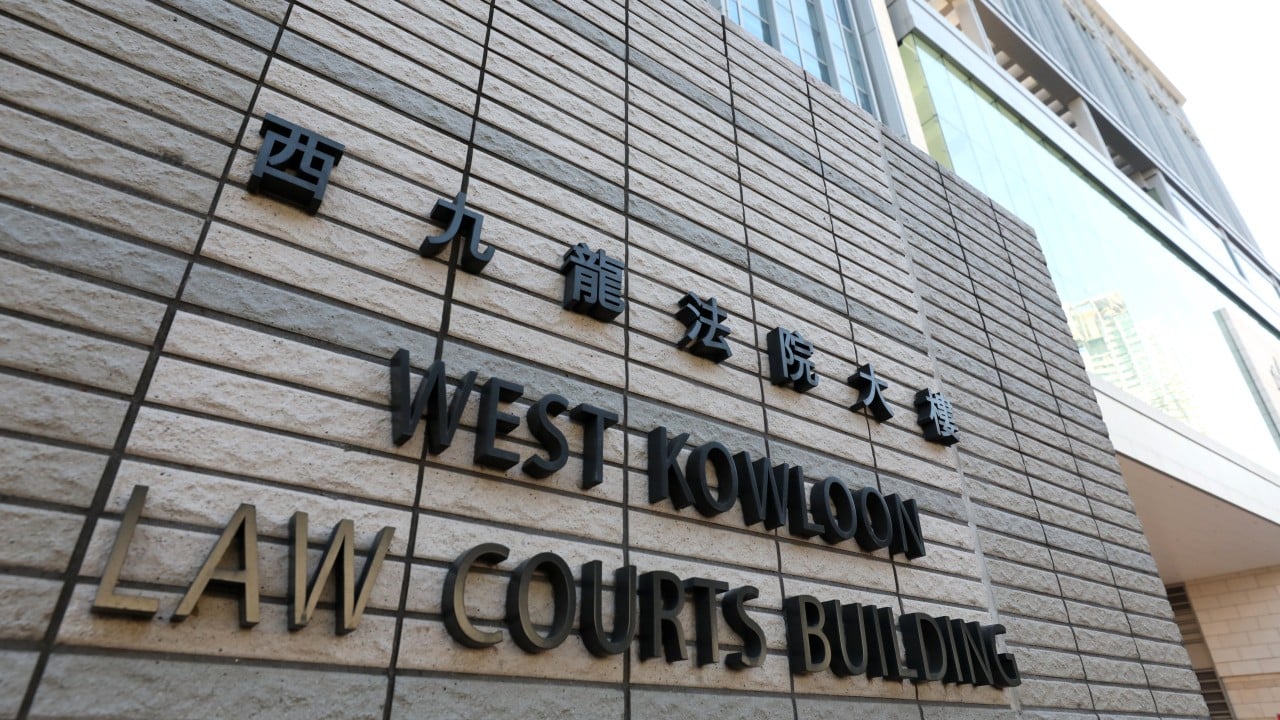Two men detained under Hong Kong’s domestic national security law intend to plead guilty to sedition, but one of them is seeking to challenge the legality of his prosecution.
West Kowloon Court heard on Wednesday Au Kin-wai and Chu Kai-pong were planning to plead guilty respectively to publishing offensive material on social media and wearing seditious clothing in public. Both alleged offences took place earlier this year.
Chu, 27, may also admit to charges of loitering and failing to produce proof of identity upon demand subject to a plea bargain, according to his lawyer Steven Kwan Man-wai.
But Kwan said his other client Au, 58, would only plead guilty if the sedition offence was held to be consistent with the human rights safeguards under the Basic Law, the city’s mini-constitution.
The lawyer argued the court was not completely bound by an earlier authoritative ruling upholding the constitutionality of a now-repealed, similarly worded sedition charge introduced while the city was under British rule.
He noted the new charge under the Safeguarding National Security Ordinance, which replaced the colonial-era offence, allowed for fewer statutory defences while expressly stating an act could be seditious without intending to incite violence or public disorder.
Kwan said he intended to show in the coming proceedings the ordinance imposed excessive restrictions on a person’s freedom of speech.
But Chief Magistrate Victor So Wai-tak, one of the few arbiters hand-picked by the chief executive to oversee national security proceedings, suggested the landmark ruling by the Court of Appeal earlier this year would still play a prominent role in his determination on the issue.
He noted the wording adopted by the ordinance was “more or less the same” as that used in the outdated provisions, which were found to be constitutional by the appellate court.
The magistrate adjourned the legal debate in Au’s case until September 20 for the prosecution and defence to file written arguments. He scheduled the next hearing of Chu’s case for September 16.
Chu was accused of wearing a T-shirt that said “Liberate Hong Kong; revolution of our times” and a yellow mask printed with the character “FDNOL”, an apparent reference to the “five demands, not one less” protest slogan originating from the 2019 social unrest, on June 12.
Au allegedly posted videos on his social media profiles between March and June promoting a “revolution” against the central government and calling for Chinese President Xi Jinping and Hong Kong leader John Lee Ka-chiu to “step down”.
Both defendants have been remanded in custody since their prosecution in June.
Sedition is punishable by up to seven years’ imprisonment under the national security ordinance, and up to 10 years if the act involves collusion with an “external force”, such as a foreign government or organisation or anyone representing it.
The offence previously carried a maximum jail sentence of three years under Section 9 and 10 of the colonial-era Crimes Ordinance.
The national security ordinance, which was designed to complement the national security law imposed by Beijing in June 2020, also targets offences such as treason, insurrection, espionage and external interference, with penalties running up to life imprisonment.


